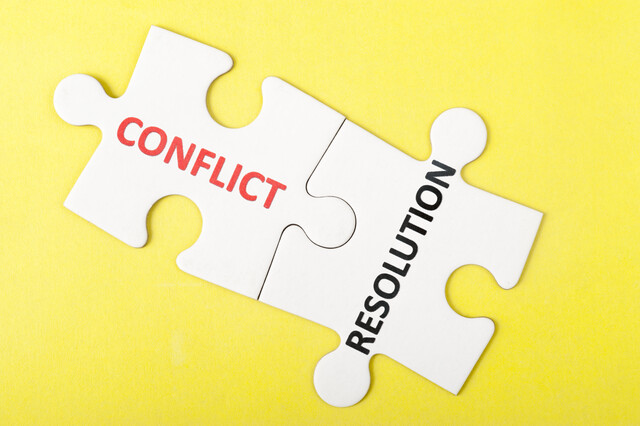Online Class: How To Be Your Own Private Investigator
We're sorry, this course is no longer open for enrollment.
-
13Lessons
-
41Exams &
Assignments -
12Hours
average time -
1.2CEUs
Course Description
How would you like to be your own detective?
Are you interested in tracking down someone who owes you money, or getting information from credit bureaus or locating lost children or friends, or finding out whether a spouse or lover is being faithful or do you want to learn more about one of the fastest growing careers? If you answered "yes" to any of these questions then this is the perfect course for you! Through this private investigator course you will be given the tools to perform searches over the internet, the skills to assess public records online and the methods for performing background investigations. The class will include real life examples from actual private investigators. So if sleuthing is something that intrigues you, join this self-paced online course.
Course Motivation
-
Being able to track down companies or individuals that "skipped town" with your money.
-
Opportunities to easily access up-to-date credit reports and credit histories to avoid collection issues further down the road
-
Locating long-lost friends, relatives and biological parents
-
Learning to locate missing children and runaways
-
Never having to just "wonder" if a spouse is cheating, but having the tools to actually unearth the facts
Lesson 2: Tools Needed to Be a Successful P.I.
Lesson 3: How to Do Searches on the Internet
Lesson 4: The Rich Sources of Information Found in Public Records, and
- Completely Online
- Self-Paced
- 6 Months to Complete
- 24/7 Availability
- Start Anytime
- PC & Mac Compatible
- Android & iOS Friendly
- Accredited CEUs

Course Lessons
Lesson 1: The Real World of Private Investigation: Separating Fact from Fiction
Despite its portrayal as an exhilarating profession, Private Investigation is typically a meticulous and research-intensive job that rewards those with strong observational skills and an aptitude for problem-solving. The field is expanding, with specialization options helping potential investigators leverage their unique backgrounds and interests for long-term career advancement.Lesson 2: Essential Gear and Traits for Aspiring Private Investigators
This lesson highlights the indispensable balance between equipping oneself with the right investigative gadgets and developing personal skills such as observation and intuition to thrive in private investigation. It underlines the non-necessity of stereotypical detective icons like fedoras and mustaches, pointing instead to practical readiness and personal steadiness.Lesson 3: Developing Your Investigation Skills
Investigation prowess is built on persistence and critical thinking, nurtured by exercises in patience, observation, and strategic games. Phone tactics and interviewing skills can be enhanced through practice and engagement in conversations with strangers.Lesson 4: Eye for Detail: Training Your Observational Skills
To excel as an investigator, cultivate an eye for detail and a robust memory through practice. Regularly challenge your observational prowess in busy environments and with memory-enhancing games to boost investigative acumen.Lesson 5: Harnessing the Power of the Internet for Effective Investigations
Private investigators benefit greatly from mastering web searches, utilizing resources like Google Local and online directories to acquire personal data. This lesson emphasizes strategic searching to navigate through vast information, enhancing investigative efficiency.Lesson 6: Navigating the Public Domain: Essential Resources for Investigators
As private investigators, accessing public records is crucial to find information not always available through standard search engines like Google. LexisNexis and Search Systems serve as primary resources, the former offering a vast paid database, while the latter provides a mix of free and paid public document access crucial for comprehensive investigations.Lesson 7: The Art of Background Investigation
For a Private Investigator, effective background checks hinge on the client's distinct requirements and the applicable legal framework. Diverse techniques, from strategic interviewing to examining organizational ties, aid in compiling an individual's trustworthiness and previous behaviors.Lesson 8: The Art of Discreet Surveillance: A Practical Guide
The lesson emphasizes the importance of practical and legal considerations in choosing surveillance equipment over unrealistic gadgets seen in movies. It advises on selecting affordable tools like binoculars, digital recorders, and inconspicuous vehicles, while maintaining compliance with legal regulations.Lesson 9: Tips for Effective Home Surveillance
Surveillance work often lacks excitement but remains crucial for private investigators who must practice patience and ethical methods to gather evidence effectively. Mastering discreet observation and law-abiding practices help mitigate risks of legal issues and increase chances of obtaining useful information.Lesson 10: The Affair At a Glance
Investigation of infidelity is delicate and demands the use of advanced skills and tools, such as surveillance and digital tracking. The responsibility of a private investigator is to discreetly uncover truth while respecting privacy and legal boundaries.Lesson 11: Finding the Runaway
Missing person cases range widely, but private detectives often intervene in teen runaway situations, where the individual has opted to vanish, complicating parental responses. Immediate action enhances recovery odds, with runaways frequently facing greater harm if not located quickly.Lesson 12: Corporate Loss Prevention: Strategies for Detecting and Preventing Theft
Expertise in tech can amplify a Private Investigator's ability to trace digital theft, while financial know-how aids in detecting embezzlement. Their proactive presence in businesses serves as both a deterrent and a solution against theft.Lesson 13: Legalities for Private Investigators: A Comprehensive Guide
The legal framework governing Private Investigators varies by jurisdiction, necessitating thorough research into local laws before commencing activities. Adhering strictly to legal boundaries is crucial, as operating outside them can lead to grave consequences.
Learning Outcomes
- Describe various specializations within the private investigation industry and outline the skills and background needed for successful practice in these areas.
- Recognize the realistic expectations of a career in private investigation by identifying common misconceptions and understanding the typical nature of investigative work.
- Define the essential equipment, including high-quality digital cameras and note-taking tools, required for effective surveillance as a Private Investigator.
- Demonstrate understanding of the key personal qualities—patience, persistence, observation, quick thinking, and intuition—that contribute to successful outcomes in private investigation scenarios.
- Apply critical thinking techniques, such as playing strategic games, to analyze gathered information and make well-reasoned decisions based on detailed observations.
- Demonstrate increased persistence by completing progressively difficult observation and patience exercises, maintaining focus and effort until objectives are met.
- Apply memory improvement techniques to recall at least 80% of observed details after a second exposure to the subject within 24 hours.
- Demonstrate enhanced observation skills by identifying at least five detailed elements in a busy environment following 20 minutes of observation.
- Demonstrate the ability to refine search results by employing Boolean operators and quotation marks to narrow down information efficiently.
- Recognize how to use online directories to locate essential information such as full names, addresses, and phone numbers.
- Demonstrate proficiency in using Search Systems to locate public records by successfully identifying at least one record related to a personal acquaintance.
- Define the key differences between free and paid public record access and illustrate the practical uses of each resource.
- Define the steps necessary to conduct a legal and comprehensive background check using multiple sources, including public records, interviews, and organizational affiliations.
- Demonstrate mastery of lesson content at levels of 70% or higher.
Student Testimonials
- "What was most helpful was the video at the end of each lesson." -- Emilio C.
- "The course and the instructor were extremely helpful." -- Israel T.
- "THANKS I WILL BE TAKING MORE CLASSES SOON." -- Oscar D.
- "A good learning experience." -- Johnny P.
- "What can i say? Fantastic course! Almost wish I could take it again!" -- Martin M.
- "Great teacher. Always answered any questions you have." -- Mark C.
- "All the material was very useful." -- Mark C.
- "The instructor was a knowledgeable and capable instructor. I thoroughly enjoyed his class." -- Jerry F.
- "I really enjoyed this class and I hope to keep learning on here in the future. The instructor was very nice as well." -- Joseph S.
- "The website search. I was better my results when searching online. It has made finding things and people a lot easier." -- Joseph S.
Related Courses
-
 7 hours
0.7 CEUs
Understanding Drug and Alcohol Abuse
+ More Info
7 hours
0.7 CEUs
Understanding Drug and Alcohol Abuse
+ More Info
-
 7 hours
0.7 CEUs
Conflict Resolution
+ More Info
7 hours
0.7 CEUs
Conflict Resolution
+ More Info
-
 5 hours
0.5 CEUs
Emotional Intelligence
+ More Info
5 hours
0.5 CEUs
Emotional Intelligence
+ More Info
-
 2 hours
0.2 CEUs
Understanding Insurance Types
+ More Info
2 hours
0.2 CEUs
Understanding Insurance Types
+ More Info
-
 5 hours
0.5 CEUs
Child Safety for Parents
+ More Info
5 hours
0.5 CEUs
Child Safety for Parents
+ More Info
-
 8 hours
0.8 CEUs
Assertiveness Training
+ More Info
8 hours
0.8 CEUs
Assertiveness Training
+ More Info
-
 12 hours
1.2 CEUs
Serial Killers 101
+ More Info
12 hours
1.2 CEUs
Serial Killers 101
+ More Info
-
 5 hours
0.5 CEUs
Creative Thinking Skills
+ More Info
5 hours
0.5 CEUs
Creative Thinking Skills
+ More Info
-
 5 hours
0.5 CEUs
Critical Thinking Skills
+ More Info
5 hours
0.5 CEUs
Critical Thinking Skills
+ More Info
-
 10 hours
1.0 CEUs
Contract Law 101 - An Introduction
+ More Info
10 hours
1.0 CEUs
Contract Law 101 - An Introduction
+ More Info
-
 7 hours
0.7 CEUs
Negotiation Skills
+ More Info
7 hours
0.7 CEUs
Negotiation Skills
+ More Info
-
 5 hours
0.5 CEUs
Listening Skills
+ More Info
5 hours
0.5 CEUs
Listening Skills
+ More Info
-
 10 hours
1.0 CEUs
Understanding Addictions
+ More Info
10 hours
1.0 CEUs
Understanding Addictions
+ More Info
-
 6 hours
0.6 CEUs
Confidence Building
+ More Info
6 hours
0.6 CEUs
Confidence Building
+ More Info
-
 7 hours
0.7 CEUs
Healthy Relationships
+ More Info
7 hours
0.7 CEUs
Healthy Relationships
+ More Info
-
 7 hours
0.7 CEUs
Innovative Thinking Skills
+ More Info
7 hours
0.7 CEUs
Innovative Thinking Skills
+ More Info
-
 11 hours
1.1 CEUs
Mediation 101
+ More Info
11 hours
1.1 CEUs
Mediation 101
+ More Info



